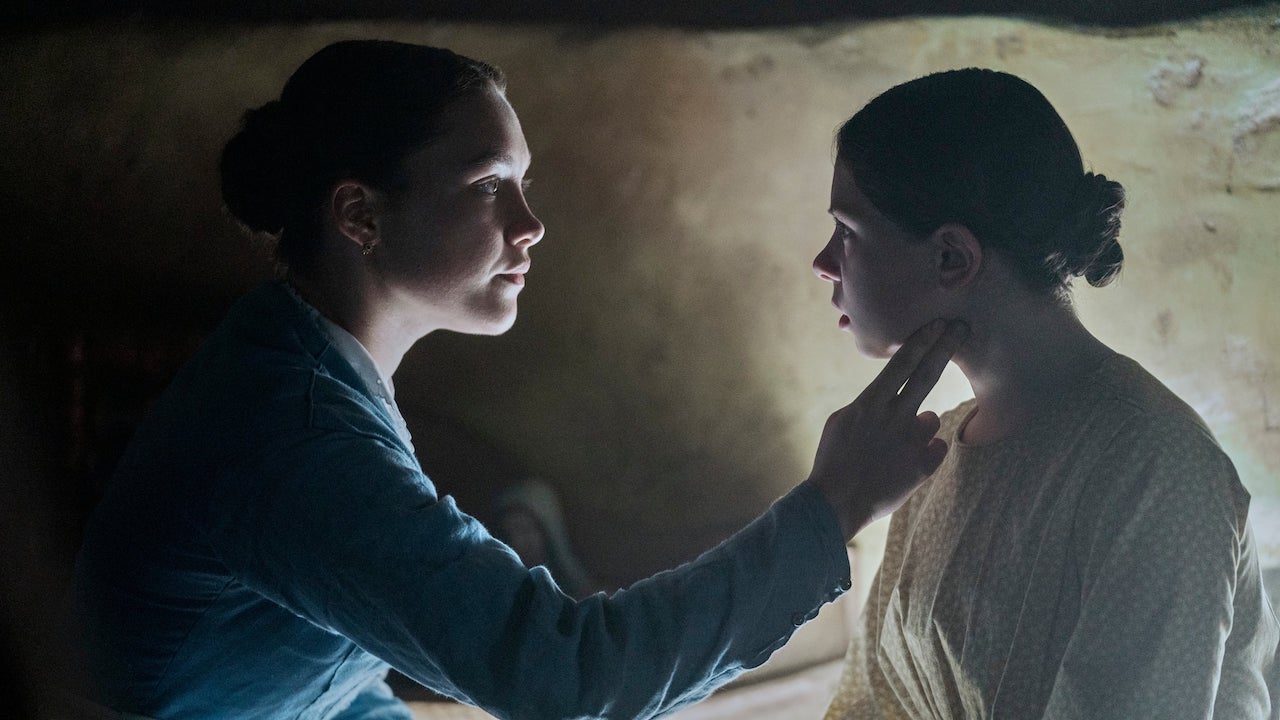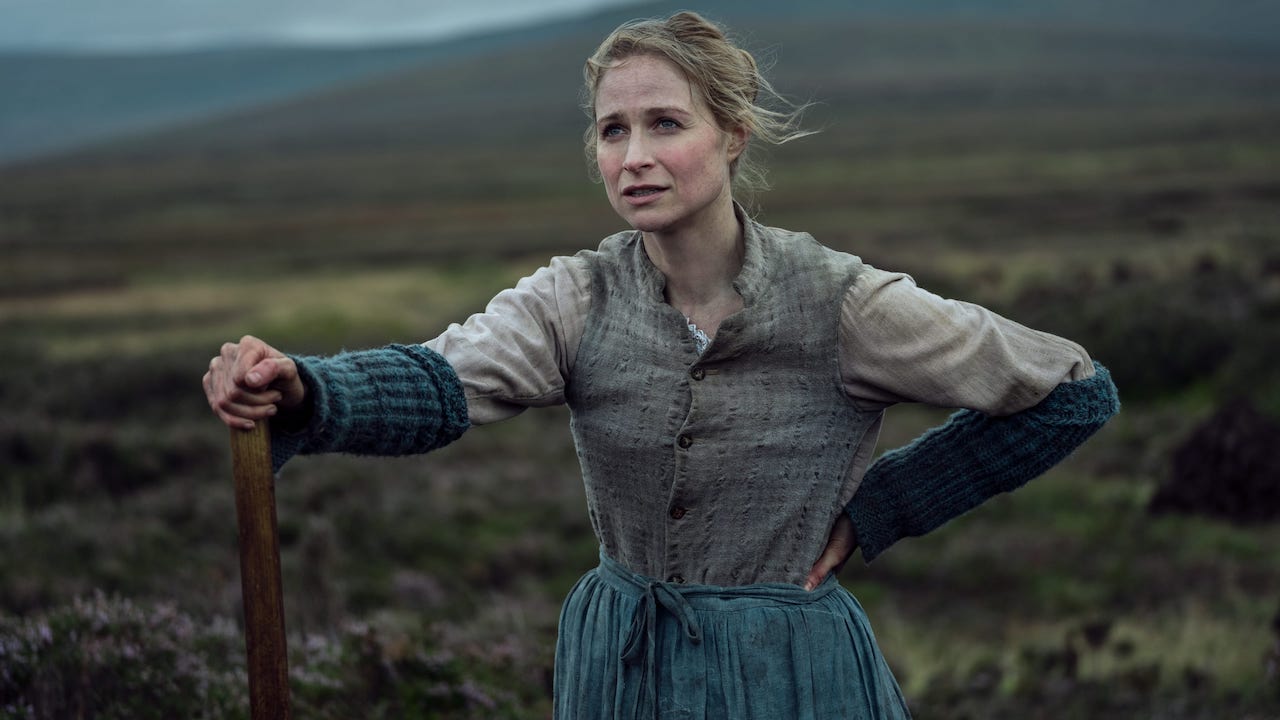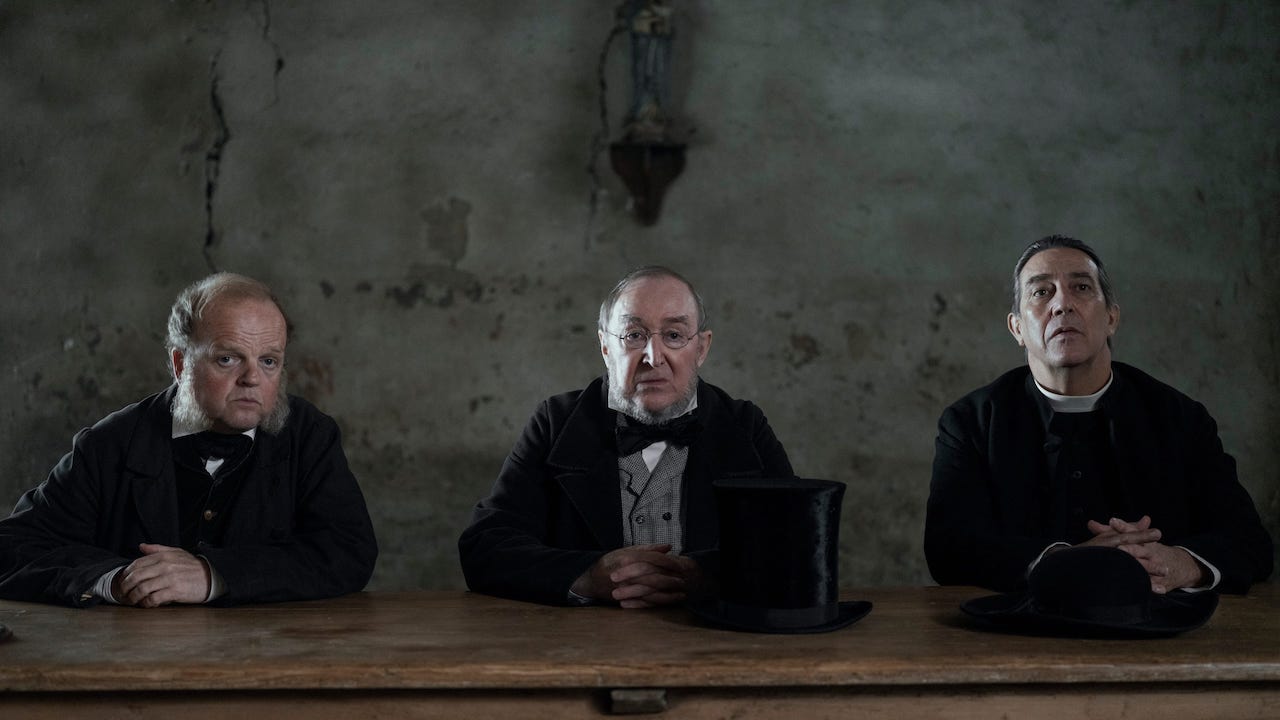The Wonder wondrously reveals the power—and menace—of storytelling

Florence Pugh goes period again for The Wonder, a religious reckoning sparked by a young girl’s apparent martyrdom. Here’s Eliza Janssen’s review of this stirring tale’s Netflix release.
I always struggled to understand transubstantiation: the Christian belief that during communion, those tasteless biscuits and sour wine don’t just represent the body and blood of Christ, but are, supernaturally, parts of Jesus. I don’t go to church these days, but will never shake off the feeling of some practical joke being pulled after a pastor chided 14-year-old me for asking: “but like, not literally. Right?”
Yes, literally. If you believe. This specific example of symbols taking on a powerful, tangible meaning for their followers is brought up in Sebastián Lelio’s The Wonder, with Florence Pugh as the new nurse of an Irish girl being hailed as some kind of new saint. She hasn’t eaten for four months but stands healthy, the townsfolk say, a potent parable considering the still-lingering trauma of famine in 1862. Visitors flock to her side to see this miracle, and Pugh’s sure one of them has to be slipping her rations.
Pugh interviews the family and learns one of my holy wafers was the last thing Anna (Kíla Lord Cassidy) ate before her divine fast. “So flour and water, then”, she notes, but Anna’s sister (Niamh Algar, below) angrily rebuts that what the thin girl last had was literally the body of Christ. We’ll learn, 20 minutes into this stirring and acutely made drama, that it’s not Pugh’s low voice that’s narrating the unfolding yarn: it’s the faithful Algar, first heard over a modern-day opening shot of scaffolding around the production’s set.
“This is the beginning of a film called The Wonder”, she says, startling viewers keen for a stuffy period drama. “We are nothing without stories, and so we invite you to believe in this one.” It’s not the only disarming trick Lelio has up his sleeve. There’s also Matthew Herbert’s score, with disturbing wails of electronic sound whenever blood appears or when Anna and Pugh’s nurse Lib first touch hands.

What emerges is a sobering and sometimes upsetting film with a lot of soul—with reverence for how special and empowering stories, particularly hopeful religious examples, can be, but also with some amount of fury at the oppression they can allow to fester. Without ever dipping into didactics, Emma Donoghue’s characters (adapted to script from her own 2016 novel) each represent one firm perspective on an unbelievable tale, and we gradually come to see where their belief (or lack of) has grown from.
An English outsider in a surly Irish town, Pugh only wants the facts, seemingly content to follow one gruff villager’s advice to “prove it’s nonsense and then fuck off home”. She’s caught between a board of domineering male authorities in the town (Ciarán Hinds and Toby Jones among them, as men of faith and medicine) and Anna’s mostly female family, who see their daughter’s mysterious asceticism as salvation for their dead son.
Pugh’s Lib has a similar powder-blue, 19th century wardrobe as her precocious Amy March of Little Women, but the two characters couldn’t be more strikingly different. It’s exhilarating to see the full range of Pugh’s warmth, command, and God-tier frowning abilities after she was robbed of room in Don’t Worry Darling. Gradually we see that she might be the only character in the film who truly has Anna’s best interests at heart, and the ending she and tremendous young actor Kíla Lord Cassidy build with one another feels like one big rewarding exhale.

Lelio has proven himself a devotee of stories about women liberating themselves, in Gloria, Disobedience, and Oscar-winner A Fantastic Woman. The Wonder seems slightly more focused on children being trapped, but also defined and freed, by the stories they’re led to believe, but it still stands as the most complete entry in the director’s canon yet.
With wistful heather-clad landscapes, weighty and ambiguous ideas, and Pugh’s guiding presence, The Wonder manages to transubstantiate into one of the soulful parables it depicts.

















